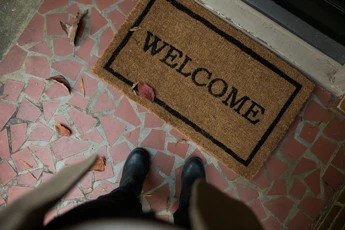You’ve probably heard the term ‘buy-to-let’ more times than you can shake a stick at, but what does it actually mean? Essentially, the term refers to buying a property with the intention of renting it out, rather than living in it.
While it seems straightforward enough, there’s a whole host of jargon associated with buy-to-let to get your head around. Let’s cut through the noise and delve right in…
Accidental landlord - unexpectedly owning and renting out a property through circumstance, such as inheritance
Assured shorthold tenancy - residential agreement between tenants and landlords stating the terms for living in a rental property
Buy-to-let mortgage - a loan for purchasing a property to rent out to tenants on a long-term basis
Electrical Safety Regulations - requires landlords to ensure the property’s electrics are inspected by a qualified professional and are properly maintained
Energy Performance Certificate (EPC) - rates a property’s energy efficiency between A (most efficient) and G (least efficient)
Gas Safety Check - a yearly inspection to ensure the safety of all gas appliances and flues in rental properties
Gross rental yield - annual income calculated using the price of the property and the income it generates
Holiday let mortgage - a loan for purchasing a property to let out to tourists on a short-term basis
House in Multiple Occupation (HMO) - a property rented out by three or more unrelated tenants, sharing facilities such as a kitchen/bathroom
Landlord - an individual who rents out the property they own to tenants for a monthly fee
Landlord inventory - a document recording the condition/contents of a rental property at the start and end of a tenancy
Letting agent - a third party company that helps landlords find and manage tenants in rental properties
Let-to-buy - allows homeowners to rent out their current property in order to purchase a new one
Long let - a rental agreement with a longer term (usually six months or more)
Mortgage Payment Protection Insurance (MPPI) - covers mortgage payments in the event of illness
Non-Resident Landlord Scheme - requires letting agents/tenants to withhold tax on the UK rental income of landlords residing outside of the UK
Portfolio landlord - an individual owning four or more buy-to-let mortgaged properties
Rental arrears - unpaid rent owed to the landlord by the tenant
Right to rent - a legal requirement for landlords to verify tenants’ immigration status before letting out a property to them
Section 21 - an eviction notice issued by the landlord instructing tenants to vacate the property by a specific date
Short let - a rental agreement with a shorter term (usually one week to six months)
Stamp Duty Land Tax - a tax paid by landlords when purchasing a property for rental purposes
Sublet - when an existing tenant rents out all/part of the property to another individual
Student let - a rental arrangement where a property is exclusively let out to students, often near universities/colleges
Tenancy agreement - a contract between a tenant and a landlord, outlining the terms and conditions of the lease
Tenancy void - a period of time where a rental property is vacant/not occupied by tenants
Tenants Fees Act - legislation prohibiting landlords/letting agents from charging certain fees to tenants
Tenants Deposit Scheme - requires landlords to place tenants’ deposits in a government-approved scheme for protection
Wear and tear - the gradual deterioration of furnishings and fixtures caused by everyday usage over time
While the world of buy-to-let certainly offers plenty to think about, it can be useful to speak to an expert. Our team of advisers are specialists in their field, cutting through the noise and guiding you through the mortgage application process from start to finish.
Get in touch with us today for a free, no obligation chat and see how we can support you in your buy-to-let journey.
Important information
Your home may be repossessed if you do not keep up repayments on your mortgage.
There may be a fee for mortgage advice. The actual amount you pay will depend on your circumstances. The fee is up to 1% but a typical fee is 0.3% of the amount borrowed.
Related Articles
Mortgage jargon buster
Equity, base rates, and conveyancers. What do they all have in common? They’re all mortgage jargon. Let’s break them down into more manageable chunks…
Becoming a landlord
It’s important to go into the buy-to-let market with your eyes wide open, aware of all the ins and outs that are involved in being a landlord.
5 reasons to use a buy-to-let mortgage broker
Working with a mortgage broker could make your buy-to-let journey easier. Here's how.
No posts currently available







